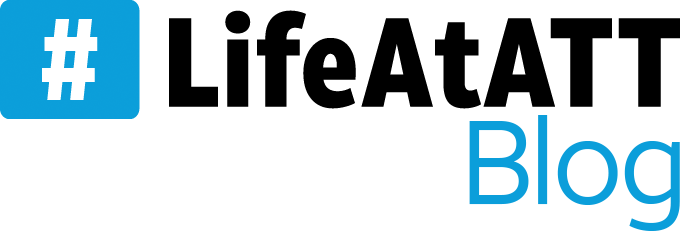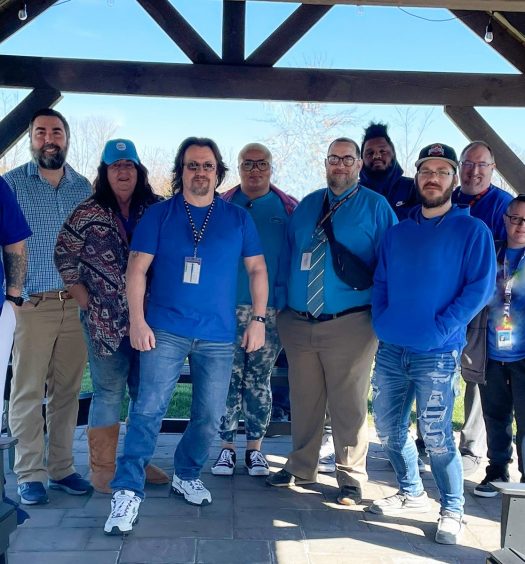Mentorship can help you gain a new perspective on how to continue your professional growth. When it comes to veterans, their skills learned in the military can be a natural fit for many civilian careers – the difficulty comes in learning how to apply them. It’s here where mentorship can make a profound impact. Veteran mentors are a valuable resource: they built successful careers while understanding the pitfalls that come with a military-to-civilian transition.
However, it’s not enough to just find a mentor.
In our recent #VeteransChat, veteran business leaders and experts shared their experiences on Twitter. See some of their responses as we asked how veterans – no matter where they are in their careers – can build a successful mentor-mentee relationship.
We Asked: In your professional opinion, how important is it to have a mentor in your civilian career?
Very helpful – but also focus on building a larger network and not solely relying on an individual for direction. Develop trusted resources with experts in various fields throughout the corporate structure – finance, sales, manufacturing, tech, etc. #VeteransChat https://t.co/FEsCB69yMp
— Michael Wittrock (@MikeJWittrock) May 12, 2020
Extremely! Mentors act as a sounding board to offer a new perspective as you make decisions. Your mentor is your guide to keep you on track to achieve the goals you set for yourself as well as opening up your eyes to new ideas you might not have considered. #VeteransChat https://t.co/FQ5Ivszf4A
— ACP (@acp_usa) May 12, 2020
We Asked: What are some common mistakes mentees make?
A.2 #VeteransChat – It’s a mistake to think a mentor will find a job or role for you and that this is their primary function. Mentors can assist in planning and approach, help you become familiar with what you don’t know, and especially what you don’t know that you don’t know. https://t.co/A3z7Lx5FPQ
— James Schmeling (@jschmeling) May 12, 2020
One of the foundations of a great mentor-mentee relationship is trust. Mentees do their part in building trust by showing up and following through. Not doing this is a big mistake. #VeteransChat #InspireVets https://t.co/ADuRbiMkKZ
— FourBlock (@FourBlock) May 12, 2020
We Asked: Where do you think the biggest blind spots are when it comes to veterans transitioning or changing civilian careers?
Blind spot #2) Expecting to jump into a position at an equivalent level in the civilian sector is unrealistic. You wouldn’t want your company, battalion, or brigade commander to have zero military experience. #veteranschat #zigszagsandpivots https://t.co/l7rUEK0Bom
— Leader Transition Institute (@LdrTransitions) May 12, 2020
#VeteransChat – I think those leaving the #military are surprised by how quickly things change. A blind spot is believing the TAP class has all the answers for everyone, and that it is easy to identify your ideal job and finding it. Definitely take 6 months before you get out! https://t.co/sYpISw7Hj8
— Justin Constantine (@Constantine_Jus) May 12, 2020
We Asked: What advice do you have for veterans who are starting or changing their career?
It can be a challenge but you can do it. Bring your military background to the table — sell yourself. It can make a difference. #VeteransChat https://t.co/num8PZ6LaI
— Charles Bassett (@CharlesBassett) May 12, 2020
Starting something new is always hard. Be flexible, study and learn the landscape and who the players are. Do not get discouraged if things don’t happen at warp speed. Remember the saying ” Trust the Process.” #VeteransChat https://t.co/J8huRTHvom
— Matt Foster (@mattmfoster) May 12, 2020
We Asked: How can a mentee make the most of their relationship with a mentor?
Mentorship is a two-way street so find a way to provide some value to your mentor so the help/assistance is not a one-way street. We all need sounding boards so your unique perspective on something is one more perspective they now have to make a better decision. #VeteransChat https://t.co/M0YuQZIdr2
— Leland Kim (@lelandkim) May 12, 2020
Ask your mentor to refer you to others you can network with. Ask for referrals related to job opportunities. Ask to be invited to special events, meetings, networking opportunities. Stay in touch with your mentor to open doors for you…#Veteranschat @attJOBS https://t.co/8Ym2y2Bih1
— Veterati (@Veterati) May 12, 2020
We Asked: What is the most important lesson you’ve learned in your career?
You don’t have all the answers. In your positions, you may feel compelled to have all the answers. You don’t. Seek input from those around you. Apply guidance or direction based on feedback and context. Make decisions with informed input. #VeteransChat #attveterans https://t.co/20MAnJDSRY
— AT&T Veterans (@ATTVeteransERG) May 12, 2020
Take pride in the small things. Best lesson I learned in basic training and it applies to work and life. Plenty of people will be average and are ok with that. Nail the simple things. People notice and it matters. @STXspeaks @attJOBS #VeteransChat https://t.co/Je5OcypIvb
— Caleb Deerinwater (@CalebDNH2O) May 12, 2020
We Asked: Knowing what you know now, what would you have done differently as you started your civilian career?
When I first left active duty, I failed to network and connect with people who may want to help me. As a result, I received a lot of rejections, and it wasn’t until an Army vet I had met forwarded my resume for me that I found a great job. Start networking early! #VeteransChat https://t.co/1Te7hDIsiG
— Justin Constantine (@Constantine_Jus) May 12, 2020
@mattmfoster has a great point. Get to know and understand the various federal, state and local Veteran Service Organizations. If you’re in school visit with the Student Veterans of America. All about the benefits. #VeteransChat #SVA #VSO https://t.co/nl6SlqCIQS
— Chaz Palisoc (@chaz_pal) May 12, 2020
We Asked: What advice do you have about setting your career goals?
Identify what you’re already good at, ask peers to describe your personality traits at work w/5 words and create your personal brand. Knowing what you’re good at will help you align yourself to a position that will be of interest and be successful! #VeteransChat #LifeAtATT 🥰🎖️🪖 https://t.co/Jrz0Nm76xI
— JoHanna Martinez (@jmartinez1226) May 12, 2020
The key is to start by defining your win: set long-term personal/professional goals. Then, work your way backward to determine and develop the right technical/leadership skills: recognize your core strengths and frame up the strategy and tactics to get to the win. #VeteransChat https://t.co/5KQP35PHUh
— Michael Wittrock (@MikeJWittrock) May 12, 2020
This is just a sample of what our participants shared; visit the #VeteransChat feed on Twitter to view the whole conversation. Interested in getting your career off the ground with AT&T? Visit the link below to see what resources we have for veterans.
Learn More



